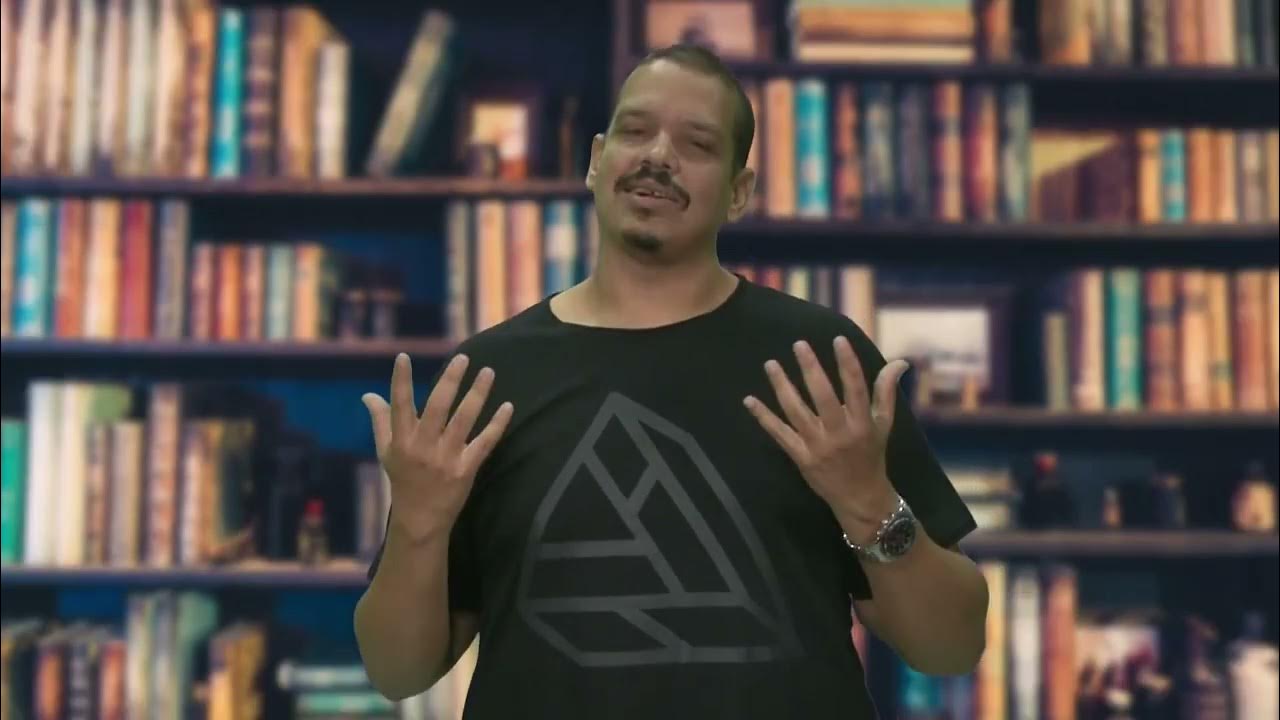UMA BREVE HISTÓRIA DA CIÊNCIA
Summary
TLDRThis video delves into the rich history of scientific thought, tracing its evolution from ancient Greece through the Scientific Renaissance and Enlightenment to the modern era. It highlights key figures like Aristotle, Galileo, Newton, Darwin, and Einstein, who challenged traditional views and revolutionized our understanding of the world. The script touches on groundbreaking discoveries in fields like astronomy, physics, and biology, while also addressing the ongoing battle for open access to scientific knowledge. The video concludes by emphasizing the role of science in shaping our present and future.
Takeaways
- 😀 The history of scientific thought traces its origins back to Ancient Greece, with early thinkers like Anaximander and Thales of Miletus laying the groundwork for modern science.
- 😀 Aristotle is regarded as an important figure in the development of scientific thinking, although his role as the 'first scientist' is debated.
- 😀 The Middle Ages saw a stifling of scientific progress due to church teachings, which limited access to knowledge.
- 😀 The Scientific Renaissance marked a major shift, with figures like Galileo, Copernicus, and Leonardo da Vinci revolutionizing scientific understanding.
- 😀 Galileo's work on motion and the telescope challenged the church's geocentric model and laid the foundation for modern physics.
- 😀 William Gilbert’s work in physics, especially on magnetism, is considered foundational for modern scientific methodology.
- 😀 The Enlightenment spread revolutionary ideas about reason and science, leading to significant discoveries such as blood circulation, atmospheric pressure, and the microscope.
- 😀 Isaac Newton's development of calculus and contributions to the understanding of light and motion were pivotal moments in scientific progress.
- 😀 In the 19th, 20th, and 21st centuries, significant advancements in atomic science, genetics, space exploration, and technology have shaped modern society.
- 😀 Despite the rapid advancement of science, 90% of new scientific knowledge remains behind paywalls, limiting access for the majority of people.
- 😀 Social movements have pushed for open-access science, leading to increased support from governments for free access to scientific research.
Q & A
What was the main focus of the video script?
-The video script provides a historical overview of the development of scientific thought, from Ancient Greece to modern times, highlighting key figures and transformative events that shaped scientific understanding.
How does the video describe the influence of Ancient Greek thinkers on modern science?
-The video credits Ancient Greek thinkers like Anaximander, Thales, and Aristotle with laying the foundation for scientific thought, with Anaximander possibly suggesting early ideas about evolution and Aristotle contributing to the rise of scientific inquiry despite disagreements with later scientific progress.
What role did Galileo Galilei play in the Scientific Renaissance?
-Galileo played a crucial role in challenging Aristotle’s views on motion, contributing to the understanding of inertia, force, and acceleration. He also built a telescope and supported Copernicus' heliocentric theory, which contradicted the Earth-centered model upheld by the Church.
Why was Galileo Galilei persecuted by the Church?
-Galileo was persecuted by the Church because his support for the heliocentric model, which placed the Sun at the center of the universe, contradicted the geocentric model supported by the Church, leading to his trial by the Holy Office.
Who was William Gilbert and what was his contribution to modern science?
-William Gilbert is considered by many to be the first modern scientist due to his emphasis on experimental evidence over philosophical speculation. His book on magnetism laid the foundation for future studies and experiments in physics.
What was the significance of Nicolaus Copernicus in the history of science?
-Nicolaus Copernicus is credited with formulating the heliocentric theory, which revolutionized our understanding of the solar system by proposing that the Sun, not the Earth, was the center of the universe.
How did the Enlightenment period contribute to scientific progress?
-The Enlightenment period contributed to scientific progress by promoting reason, the scientific method, and the pursuit of knowledge. It saw the discovery of important concepts like atmospheric pressure, blood circulation, and the invention of the microscope, among others.
What was Isaac Newton’s contribution to the history of science?
-Isaac Newton made groundbreaking contributions in mathematics, particularly in the development of calculus, and studied the properties of light. His work laid the foundation for classical mechanics and understanding the natural world.
What scientific advancements have been made in the 19th, 20th, and 21st centuries according to the video?
-The video highlights numerous advancements, including the development of atomic science, electric batteries, the theory of relativity, the discovery of DNA structure, space exploration, and modern technological achievements like artificial intelligence, cloning, and gravitational wave detection.
How has the debate around free access to scientific knowledge evolved?
-The video notes that over the years, social movements have pushed for free access to scientific knowledge. This global debate has led some governments to recognize the importance of open science, although access to much scientific knowledge remains restricted by costly paywalls.
Outlines

此内容仅限付费用户访问。 请升级后访问。
立即升级Mindmap

此内容仅限付费用户访问。 请升级后访问。
立即升级Keywords

此内容仅限付费用户访问。 请升级后访问。
立即升级Highlights

此内容仅限付费用户访问。 请升级后访问。
立即升级Transcripts

此内容仅限付费用户访问。 请升级后访问。
立即升级5.0 / 5 (0 votes)






